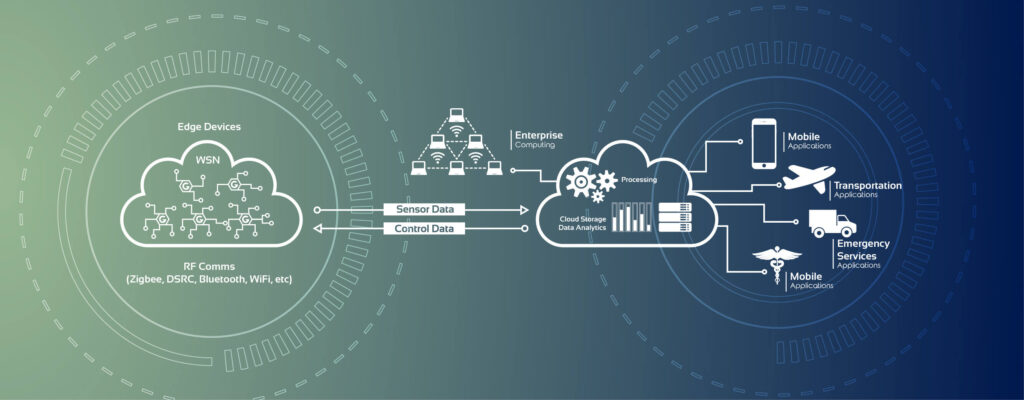How Cloud Solutions Enhance Data Access and Storage for Modern Business
Gone are the days of rigid, costly infrastructures; with cloud computing, companies can scale their operations, reduce overhead, and respond dynamically to changes in their industries. Cloud computing enables businesses to store and access data over the internet rather than on physical servers located on their premises or an off-site data center.

One of the biggest advantages of cloud technology is scalability. As businesses grow, their data and processing requirements increase, often at a rapid pace. Cloud solutions allow companies to expand or reduce their usage based on demand, ensuring they always have the right amount of storage and computing power without the need for costly physical infrastructure. Cloud storage also enables employees to access data and applications from virtually any location with internet access. This benefit has proven invaluable in today’s landscape, where remote work became more common in the past couple of years. Allowing an overall streamline in operations, ensuring that employees, no matter where they are, have up-to-date information at their fingertips.
Security is understandably a top concern for businesses handling sensitive information, such as patient health records or financial data. Cloud providers have made significant advancements in cybersecurity, often implementing more comprehensive protection measures than smaller companies could manage on their own. For property management firms that deal with personal information for tenants and property owners, cloud solutions provide a secure environment where data is protected and accessible only to authorized personnel. This not only improves security but also simplifies compliance with data protection regulations, an increasingly critical aspect of modern business operations.

One of the most appealing benefits of cloud computing is its cost-effectiveness. Traditional physical infrastructure is costly, not only to set up but also to maintain and upgrade. By moving to the cloud, businesses save on expenses associated with hardware maintenance, utility costs, and physical space requirements. Cloud solutions operate on a pay-as-you-go model, which means companies only pay for the resources they actively use, maximizing cost-efficiency. For businesses of all sizes, this can lead to significant savings, allowing them to allocate funds to other growth-driven initiatives. This financial flexibility is particularly beneficial for small to medium-sized businesses that might not have the capital to invest in expensive physical infrastructure.
One of the essential uses of cloud storage is data backup and disaster recovery. With cloud solutions, businesses can automate data backups, ensuring that critical information is secure and readily available, even in the event of a natural disaster, cyberattack, or data breach. This helps ensure business continuity and minimizes downtime, a significant advantage for businesses that depend on constant access to their data. Another useful aspect is cloud platforms often include analytics tools that allow businesses to gain insights from their data in real-time. This is particularly valuable in healthcare and hospitality, where analyzing trends and customer behaviors can significantly enhance the overall service experience. Real-time analytics enable decision-makers to react quickly to trends, enhancing customer satisfaction and driving better outcomes.
For businesses looking to shift to the cloud, here are some best practices to ensure a smooth and effective transition. It’s essential to assess your business’s unique needs and objectives. This includes identifying which areas will benefit most from cloud solutions, whether that’s data storage, collaboration tools, or specific applications. Another big aspect is selecting a reliable cloud provider is critical for a successful transition. Consider factors such as security standards, service offerings, and scalability to find a provider that aligns with your company’s needs. Opting for a provider with experience in your industry can also make a significant difference. After implementing cloud solutions, it’s important to continually monitor and optimize usage to ensure that your business is maximizing the benefits of the cloud environment. By reviewing resource consumption and adjusting as needed, you can control costs and ensure optimal performance.

While the cloud offers numerous advantages, it also presents certain challenges that businesses should prepare for. Cloud service downtime, while rare, can impact business operations. Working with a cloud provider that offers strong uptime guarantees and support can help mitigate this risk and ensure continuity. The next aspect is migrating data to the cloud can be complex, particularly for businesses with extensive legacy data. Engaging experienced IT professionals can streamline the process, minimizing disruptions and ensuring a smooth transition. Last aspect to consider is cloud computing can be cost-effective, but without careful management, expenses can add up quickly. Monitoring usage and optimizing resources are critical to controlling costs and ensuring you only pay for what you truly need.
The shift toward cloud computing has been transformative for businesses across sectors, enhancing data access, security, and operational efficiency. By adopting cloud solutions, companies in industries such as healthcare, hospitality, and property management can leverage improved collaboration, scalability, and cost savings, positioning themselves for sustained growth. With careful planning and the right approach, businesses can unlock the full potential of cloud technology, equipping themselves to thrive in an increasingly digital and competitive world.
